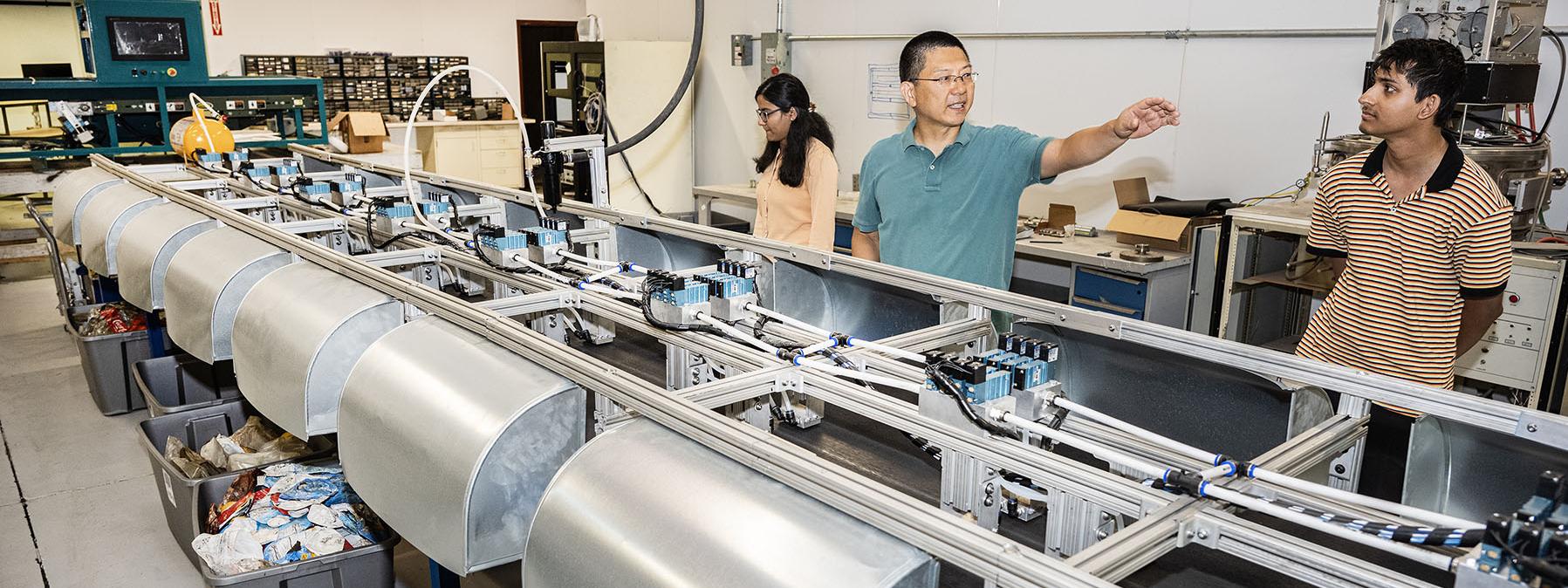
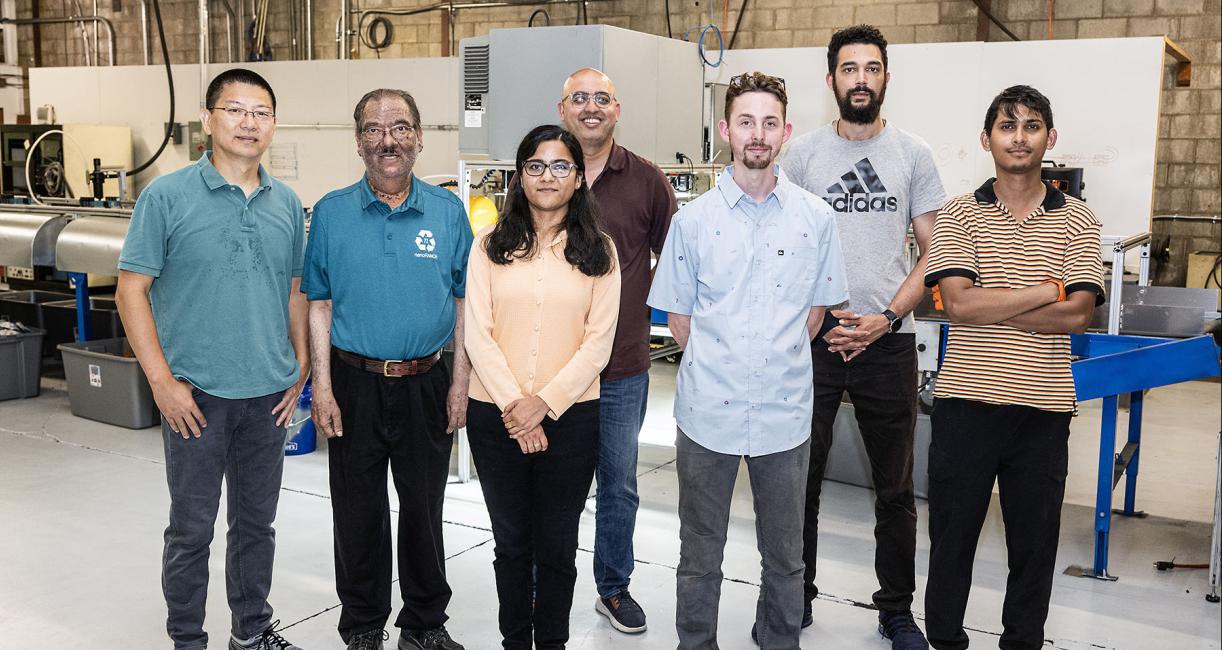
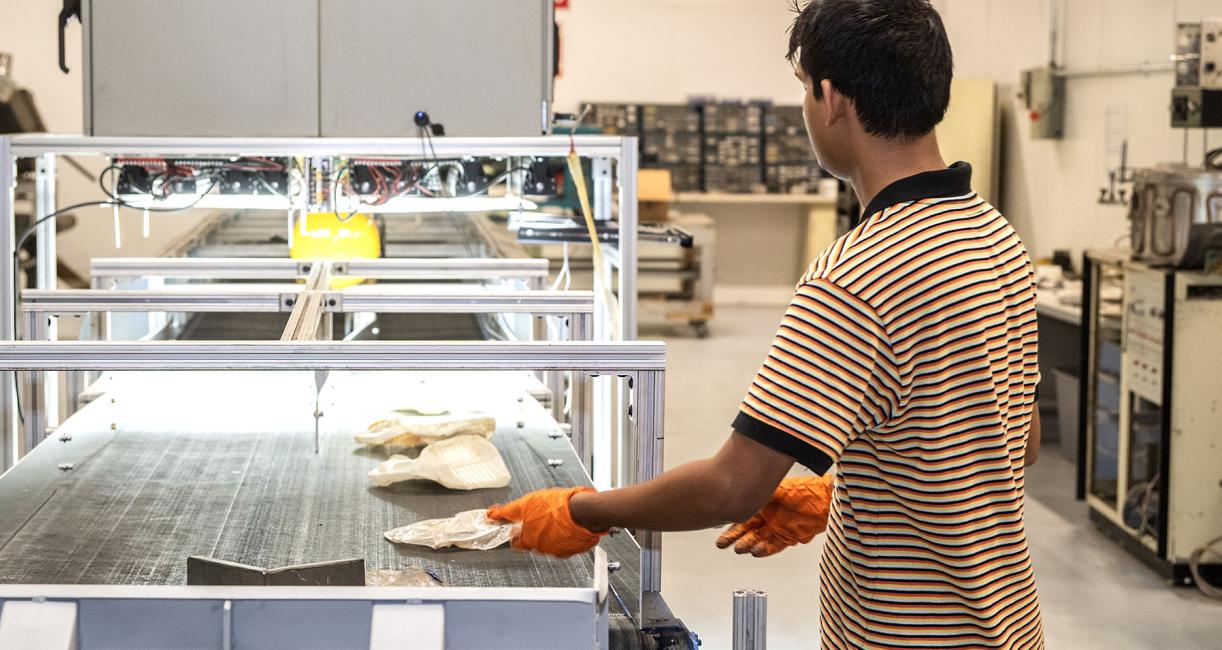
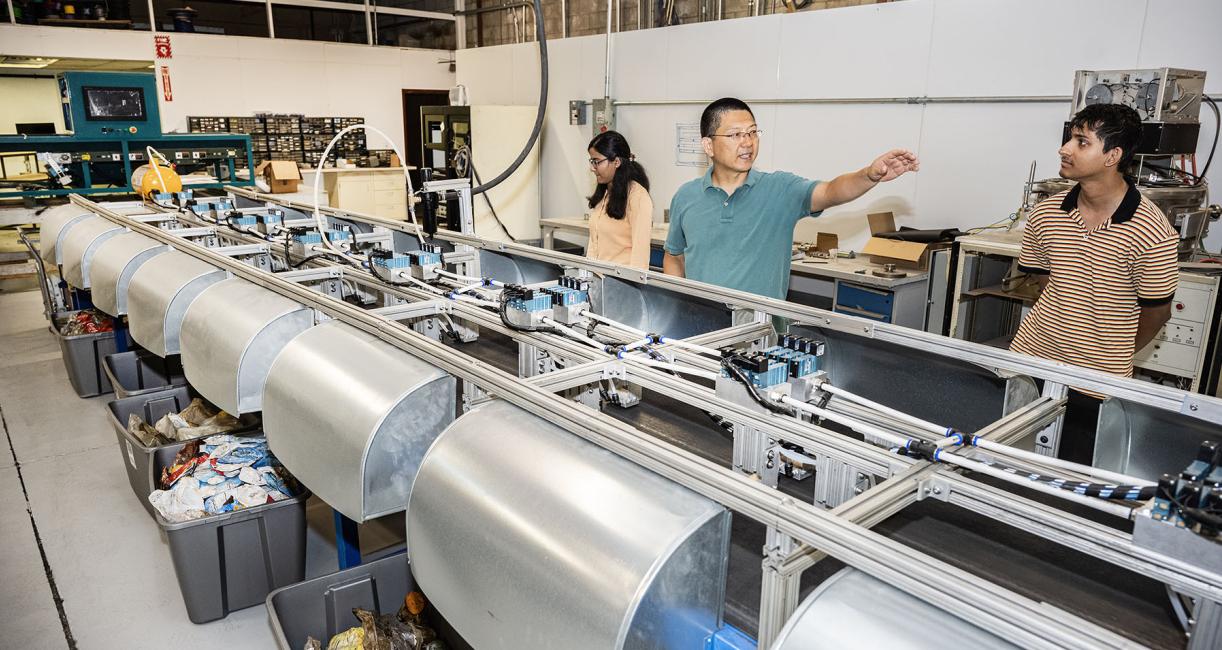
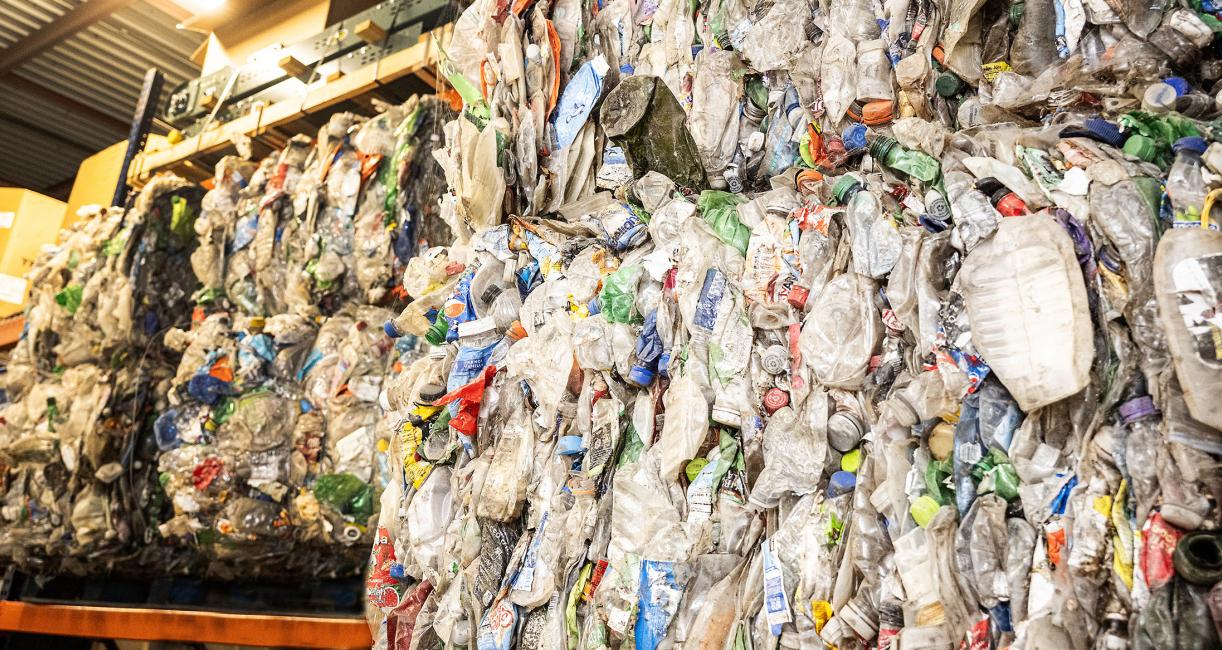

Bin Chen, PFW associate professor of electric and computer engineering; Nalin Kumar, UHV Technologies president; Isha Maun, senior AI scientist; Kanishka Tyagi, director of machine learning; Jacob Heath, research associate; Babak Namazi, senior AI scientist; and Shafayet Silvy, intern.

Placing crushed bottles on the conveyor belt.

The machine utilizes artificial intelligence to sort a variety of recyclable plastic bottles for conversion into chemical and other usable materials.

Bundles of crushed plastic.




Chen secures two major grants to develop AI-supported recycling systems
By Blake Sebring
August 13, 2024
Whenever he finishes teaching his machine learning course at the end of a semester, Bin Chen knows he has to start preparing for the next time the class is offered.
“In engineering, we have to update our knowledge consistently,” the Purdue University Fort Wayne associate professor of electrical and computer engineering said. “There is no way to teach the course the same way for 10 years. The instructors and faculty members must continue to learn and adjust to the new technology and developments in the field.”
Recently, competing against universities nationwide, Chen received two major grants from the Department of Energy for recycling research projects.
The first is funding a two-year, $100,000 effort to help UHV Technologies Inc. create a machine to sort a variety of recyclable plastic bottles for conversion into chemicals and/or other usable materials. As the crushed bottles roll down a conveyor belt, an overhead camera system utilizing AI recognizes their types and sorts them rapidly into one of eight or more possible classifications. The development is in the prototype phase and has the potential of being a much more accurate and efficient process than was previously available. The goal is to drive production costs below $30 per ton.
Initial results were above the energy department’s requirements for accuracy and other measures, Chen said, which led to an approval for the product to remain in the research and development phase for two full years before moving to commercialization.
“I believe AI will be, or is increasingly being, integrated into manufacturing processes,” Chen said. “Traditionally, many of these processes rely on human judgment and expertise. The latest advancements in AI—for example in computer vision—can improve productivity and automate many labor-intensive tasks. The manufacturing industry looks for new engineering graduates who have specific AI knowledge.”
The second grant of $461,071 was submitted again with UHV Technologies and Penn State University to work on sorting batteries for recycling. This three-year project starts this month with the goal of increasing consumer participation in battery recycling programs, improving the economics of recycling, and establishing state and local collection programs. Chen’s areas of responsibility include designing and developing a sorting AI engine similar to the one for plastic bottles.
“We want the PFW students and the professors to work with us, not only in this area, but in all the other areas where we have projects going on,” said Nalin Kumar, president of UHV Technologies.
Two PFW graduate students are involved in the current project, and Chen said he’s looking for others to work on the next.
“These grants not only support the cutting-edge research activities at Purdue Fort Wayne but also provide great opportunities for our students to engage in these projects,” Chen said. “I believe all things we do in a university should aim to improve our students so that they have the required knowledge when they graduate.”
Chen believes the best way to continue learning is by developing and completing his research projects. He works with Sean Ryan, director of university engagement, on helping one or two local industry companies upgrade their processes each summer, using artificial intelligence to develop his research and provide specific options.
Chen said studying new AI advancements takes significant commitment, but almost everything is available to view online. He also communicates directly with the authors of research papers.
“AI is improving every year, and it is changing our lives,” Chen said. “AI is a buzzword, but we don’t have any other choice because it is the best option and outperforms every previous algorithm in computer vision. I really want to apply those so-called theoretical things on the research side to real applications. That’s really exciting, and I like learning new things.”
Watch the video below to see the plastic bottle recycling system in action.





